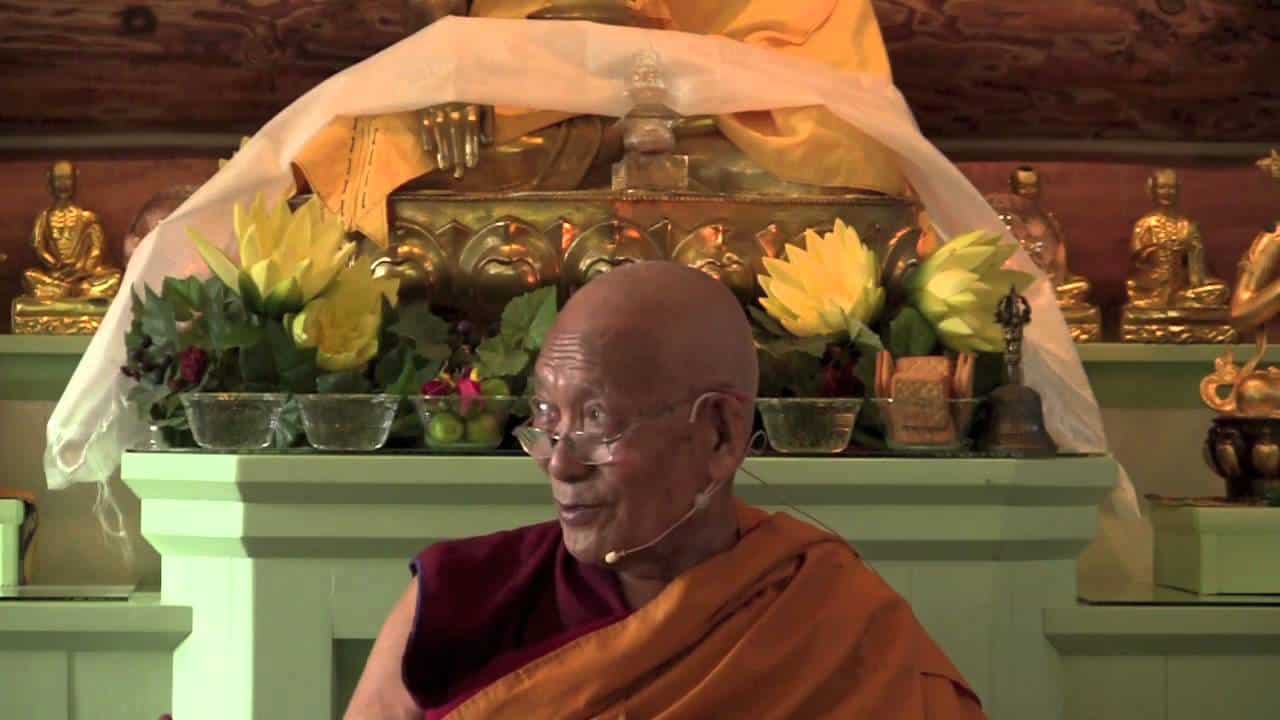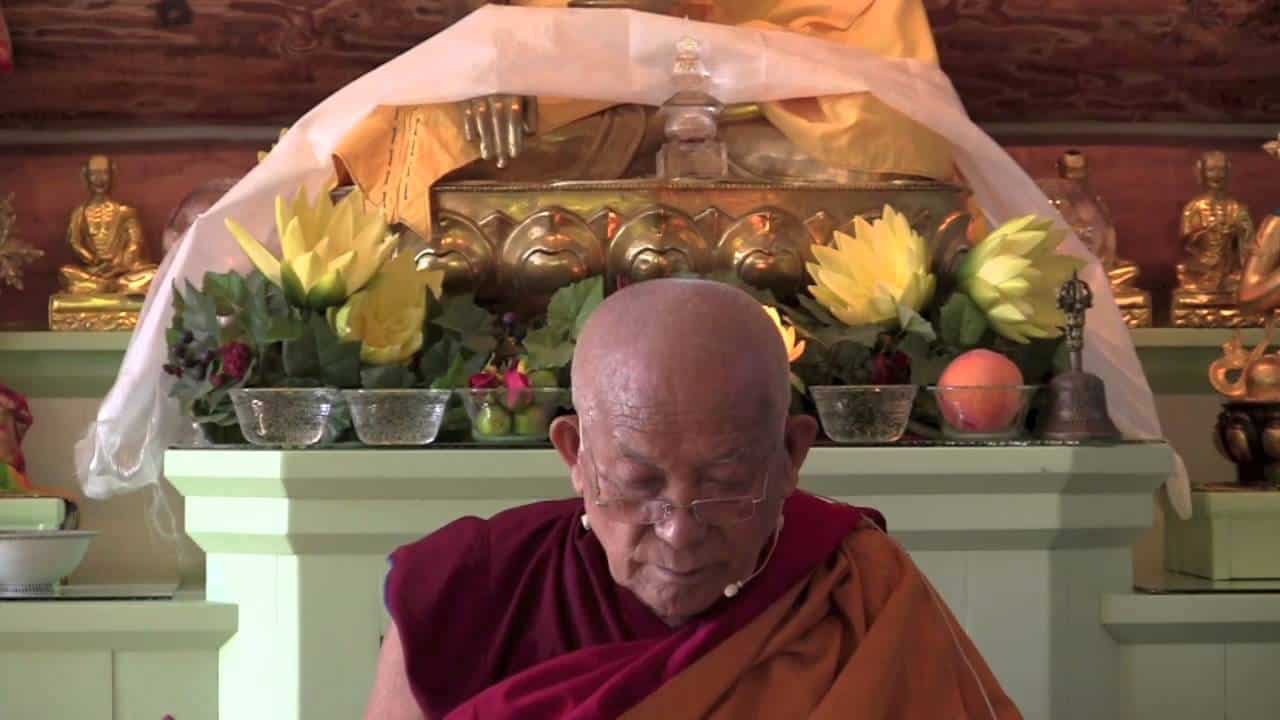Chapter 5: Verses 115-122
Part of a series of teachings on Aryadeva's 400 Stanzas on the Middle Way given on an annual basis by Geshe Yeshe Thabkhe from 2013-2017.
- Benefits of increasing the strength of compassion
- Benefits of developing fortitude for appreciating bodhisattvas
- How bodhisattvas take forms of beings in other realms in order to benefit
- Immeasurable merit gathered by bodhisattvas through skillful means
- Why bodhisattvas take special delight in giving
- Three kinds of generosity
- Criticism of inferior generosity: difference between profit and merit
- There is nothing bodhisattvas would avoid doing to benefit sentient beings
- Why bodhisattvas do not strive just for own happiness
Questions and answers
- Merit as one of the causes of bodhicitta and direct realization of emptiness
- Why is ultimate bodhicitta, a wisdom consciousness, called bodhicitta?
Geshe Yeshe Thabkhe
Geshe Yeshe Thabkhe was born in 1930 in Lhokha, Central Tibet and became a monk at the age of 13. After completing his studies at Drepung Loseling Monastery in 1969, he was awarded Geshe Lharampa, the highest degree in the Geluk School of Tibetan Buddhism. He is an emeritus professor at the Central Institute of Higher Tibetan Studies and an eminent scholar of both Madhyamaka and Indian Buddhist studies. His works include Hindi translations of The Essence of Good Explanation of Definitive and Interpretable Meanings by Lama Tsongkhapa and Kamalasila's commentary on the Rice Seedling Sutra. His own commentary, The Rice Seedling Sutra: Buddha’s Teachings on Dependent Arising, was translated into English by Joshua and Diana Cutler and published by Wisdom Publications. Geshela has facilitated many research works, such as a complete translation of Tsongkhapa’s The Great Treatise on the Stages of the Path to Enlightenment, a major project undertaken by the Tibetan Buddhist Learning Center in New Jersey where he teaches regularly.


